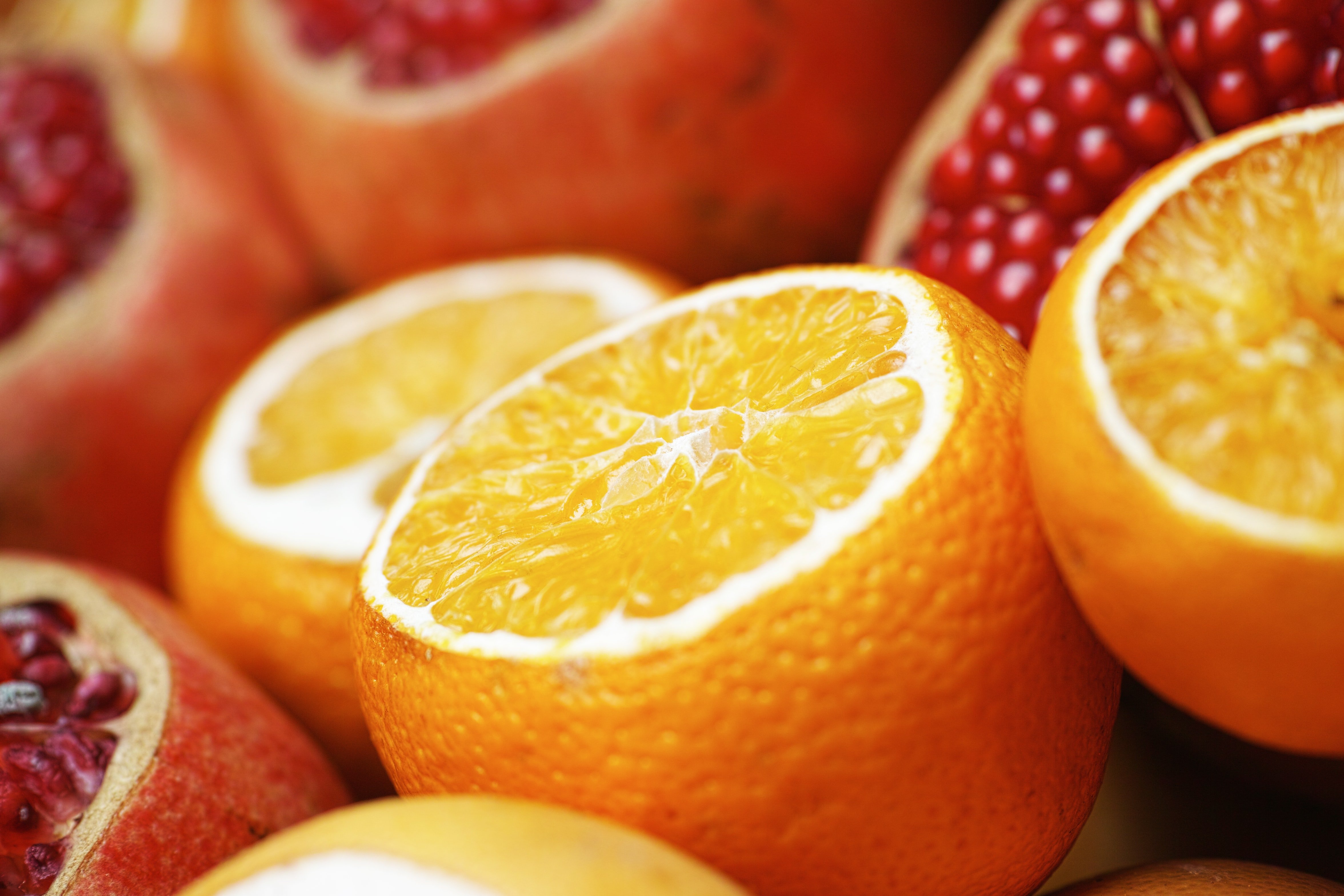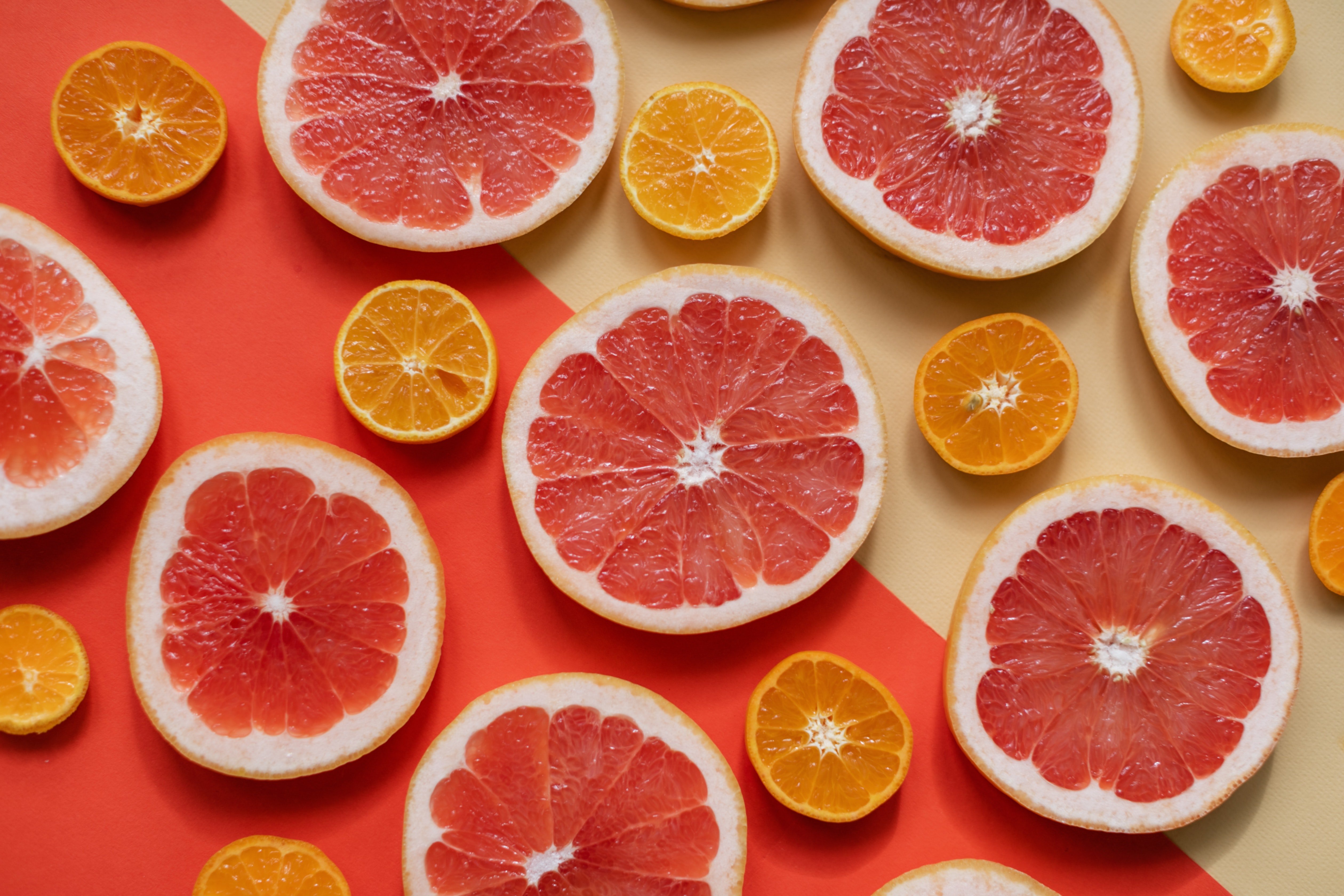When you feel a cold coming on, do you eat an orange or do you pop a vitamin C supplement? If you answered with the latter, then you probably want to keep reading.
Studies have shown that synthetic sources of vitamin C may not only be ineffective, but they may contain some unpleasant ingredients.
Here’s what you need to know about natural vitamin C and lab-made supplements. Plus, the top foods rich in natural vitamin C!
Vitamin C: essential for human health
Vitamin C is an essential micronutrient found in many fruits and vegetables. Your body uses it to grow, develop and repair tissues. It’s also responsible for collagen formation and absorption of iron.
As a potent antioxidant, vitamin C can also reduce oxidative stress and prevent disease-causing free radicals. And studies show that consuming high amounts of vitamin C can lower your risk of developing certain chronic diseases.
While vitamin C boasts a multitude of benefits, it’s best known for its role in immune function. Research has found that vitamin C can boost your immune system and shorten the symptoms of illnesses, including the common cold. This is because vitamin C promotes the production of white blood cells, known as lymphocytes and phagocytes. These cells help protect your body against certain viruses and infections.
Although vitamin C deficiency is uncommon in developed countries, it still affects around 7% of people in the U.S. Being deficient in vitamin C can cause weak bones, unhealthy teeth and gums, poor immunity and in severe cases, death.
How much vitamin C do you need?
The recommended daily value of vitamin C is 75mg for women and 90mg for men. But as Dr. Michael Greger points out, this number is only the amount you need to prevent deficiency, not the amount needed for optimal health.
Because your body filters out most vitamin C, you actually need more than the RDV. So how much vitamin C do you really need? Reports show that consuming roughly 200mg per day is the optimal vitamin C intake for adults.

Natural vitamin C vs. ascorbic acid
You can get your vitamin C two ways. The first is natural vitamin C, which you get from eating whole foods. And then there’s synthetic vitamin C, or ascorbic acid. This type of vitamin C is man-made and used in dietary supplements.
So, which one is better for you?
According to multiple studies, natural and synthetic vitamin C are chemically identical, but how your body responds to them is a different story. When you eat vitamin C-rich foods, like acerola cherries or baobab, you’re getting vitamin C in its purest form. Plus, the addition of other nutrients that can help your body better absorb certain vitamins and minerals. In fact, researchers found that the vitamin C in acerola is better absorbed by humans than synthetic ascorbic acid.
Additionally, it’s still unclear how well synthetic nutrients are absorbed in your body. This is because there isn’t a scientific standard that accurately measures supplement absorption.
A recent study published in the “Annals of Internal Medicine” suggests that relying on supplements rather than food for your nutrients may not be enough to keep you healthy. According to the study, nutrients from supplements don’t improve health as effectively as those consumed from food.
Something else to consider with synthetic vitamins is their ingredient list. Synthetic vitamin C is usually made with GMO corn and other artificial chemicals. This is because supplements aren’t regulated by the FDA the same way conventional foods are.
When it comes to getting your daily intake of vitamin C, your body actually benefits more from whole food sources versus synthetic vitamin C sources.

Top 10 vitamin C-rich foods
1. Acerola
This exotic superfruit contains 30x more vitamin C than oranges! In a 2011 study, scientists compared vitamin C content in various fruits and found that organic acerola cherry beat the others by a landslide. In addition to its high vitamin C content, acerola is a great source of antioxidants. To learn more about its benefits and where you can find it, click here.
2. Camu Camu
So nice, they named it twice! Camu Camu is a tart berry from the Amazon rainforest. This tropical super fruit is best known for its vitamin C content, as it contains over 2,000 mg per 100 grams! In addition, camu camu is rich in antioxidants and provides a wide range of health benefits. Because of its high nutrient content, it’s become a popular ingredient in powders and supplements.
3. Amla
Amla, or the Indian gooseberry, is a nutrient-rich berry often used in Ayurvedic medicine. Amla is a rich source of antioxidants, phenolics and vitamin C – containing around 600-700 mg per fruit. Because of its sour and astringent taste, it’s often sold in powders and capsules. Get to know its top 3 benefits in this article.
4. Baobab
Baobab is an African superfruit that packs quite the nutritional punch! It contains 7-10x more vitamin C than oranges, 6x more potassium than bananas and more calcium than cow’s milk! Click here to learn how to add it to your diet!
5. Rose Hips
Rose hips are tiny, tangy fruit that stem from a rose plant. These small but mighty fruits are loaded with essential nutrients, especially vitamin C! Just 6 rose hips provide 132% of the RDV of vitamin C. You can find fresh rose hips at your local health food store, however, be sure to look out for rose hip-derived products, as they usually contain artificial ingredients.
6. Chili Peppers
Need an excuse for more taco nights? One green chili pepper provides 121% of the RDV of vitamin C. Plus, the natural anti-inflammatory capsaicin, which is best known for its metabolism-boosting properties.
7. Guava
This tropical superfruit is packed with antioxidants, fiber and vitamin C. One guava fruit contains 126mg of vitamin C. In addition to its immune-boosting benefits, studies show guava can help lower blood pressure and total cholesterol levels.
8. Kale
It’s no wonder kale is popular! This nutrient-rich leafy green contains 80.4mg of vitamin C per cup. Not to mention it’s a powerful source of vitamins K, A and omega-3 fatty acids.
9. Broccoli
Eating just one cup of steamed broccoli will give you your DV of vitamin C! This cruciferous veggie contains 89 mg of vitamin C per 100 grams, and is a great source of vitamin A.
10. Cauliflower
Cauliflower is finally getting the praise it deserves – and we’re here for it! Whether you mash it, roast it, or grill it, cauliflower is an excellent source of nutrients. It’s high in fiber, protein and contains 46% of your DV of vitamin C, per half cup.





